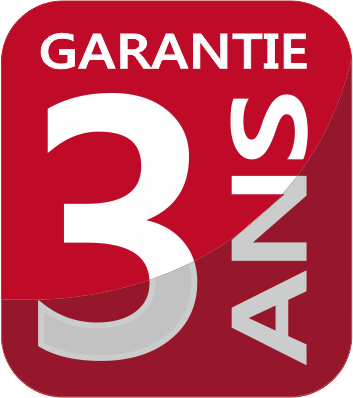AUF300
Analog autofader 3 stereo channels
AUF300 includes three stereophonic balanced A, B and C channels mixed toward a balanced output. On this device, 4 releases modes are possible with a different programming for channels B and C. Channel C is prioritary on channel B which is prioritary on channel A.
- Automatic: switches when the modulation arrives on the chosen channel (B or C).
- Manual: the switches to the chosen channel carry out outside remote control ( hold loop). Releasing the loop returns to the previous channel.
- Automatic or manual: only one or both conditions just has to be filled.
- Automatic and manual: previous both conditions have to be filled. That is, presence of modulation on the way B and closure of outside loop.
* Release of the channel C:
- Cut the channel B.
- Cut the channel A.
* Release of the channel B: fade or cut of the channel A (according to the remote order).
Channel A can be either totally off, or fade according to the remote control. It allows to cut completely the signal A (pub) or to leave a musical back ground (identification) for example.
APPLICATION :
- Insertion of advertisements downstream mixing desks.
- Mixing of advertisements and identification jingles with an unidentified musical program.
- Local program remote insertion on a national program.
- Supervision of the audio modulation presence and in case of absence, management of replacement and automatic back-up.
- AUF is implemented with top quality, extremely well protected output amplifiers which can be used as specialized, long distance shielded or coaxial line drivers.
OPTION:
- EE/ET/TE/TT: AUF300S is available in version electronically balanced or Transfo.
- OPT200: Transformer for balanced input and output (OPT201).
- BYP200: Bypass, input A or B (internal selection) directly routed to the output. (Security when mains absence)
- INS 201: Insertion unit on AUF300 B and C channels. The unit includes a mixed B+C channels output and AUF 300 mixing bus direct input. It permits, for instance, to treat sound on the local programming (B and C channels) to obtain a similar “style” as national programming’s (channel A). The treated modulation is then reinjected in AUF300.




